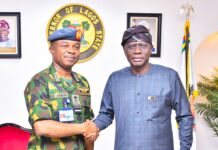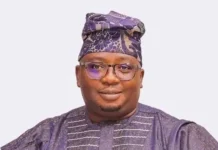Between economists and their enabling politicians, the fate of nations often hangs precariously on a balance. On their own, economists can be a miserable enough bunch in ordinary circumstances. Their professional relevance hangs on the precarious uncertainty that all things may never become equal in real life. Like Delphic oracles, economists keep their relevance and stay in business because the politicians they serve are an insecure lot who need reassurance about the unknowns of economic life. The misery of economists is heightened when as counselors to power they have to contend with recalcitrant or ignorant politicians. Quite often, when cornered by dreadful economic circumstances of their own making, politicians dig into their partisan trenches, defy wise economic counsel and aim for short term wins to retain popular appeal.
Yet, when they are lucky to find listening and enlightened politicians, economists have been known to retrieve nations from the brinks of catastrophe. But if they are burdened with ignorant politicians and pompous bureaucrats, economists can sometimes become accessories to the death of some nations. But in every circumstance, a politician who also understands real economics and is ready to tell its truths can end up as either a blessing or a pitiable outcast.
Edo state governor Godwin Obaseki has wandered into the grey zone where economic counsel can signal either the demise or salvation of a nation. Before he sauntered into partisan politics courtesy of Adams Oshiomole, Mr. Obaseki could pass as a financial sector technocrat and investment banker of lean repute. With that background, he should ordinarily know a thing or two when he is talking about matters of finance and economics. He recently stepped away from the politics of his office to mount the pulpit of economic prophesying. In the process, he definitely jumped on a few sore toes by choosing to comment on the troubled state of the nation’s economy. Mr. Obaseki is first and foremost a politician who is governor of a state on a partisan platform that pits him in opposition to the ruling party at the center.
His curiously timed critique of our current economic habits did not contain much ground breaking points. He drew attention to the danger in the familiar ritual of states heading to Abuja monthly to pick up cheques to pay recurrent bills or service mounting debts. He further lamented the decline of oil and fossil fuels as a revenue sources in a global environment that is phasing out fossil fuels. He alarmed the deaf about the ongoing massive divestment of oil majors from places like Nigeria to alternative destinations with alternative energy propositions.
Most importantly, Mr. Obaseki repeated the public alarm at the massive indebtedness of government and continuing unrestrained borrowings. Current domestic debts, according to him, now stand at over16 trillion Naira and still counting. The most frightening charge in the Obaseki treatise is the allegation that the federal government resorted to printing of N60 billion in worthless currency to shore up its funding of last month’s FAAC obligations to states and local governments.
As an opposition state governor, Mr. Obaseki merited the ire of officialdom in the form of polite partisan insults. The Central Bank has quickly risen in fiery defense of the government, first roundly denying Obaseki’s claims on the currency printing. After a few days, the CBN governor readjusted the defens into a tacit admission. The states are being doled worthless new Naira to repay what they owe the federal government. Similarly, the Minister of Finance, Mrs. Amina Zakari Mohammed joined the CBN in the initial stiff denial. The CBN governor has merely accused Obaseki of playing politics with a dire economic situation. But politicians play politics with anything at hand!
All the public knows and can feel are the signs of desperate economic times. A combination of oil market distress, global Corona virus disruptions and unparalleled insecurity have added to Nigeria’s pre-existing economic conditions. Add these to ramped up corruption (Transparency International, US Government), fiscal irresponsibility, gross mismanagement and a rudderless economic policy environment and you get the profile of Buhari’s Nigerian economy.
Currently, the government is in trouble on how to fund the deficits in the 2021 budget. It has stumbled from creaming off balances from dormant accounts of bank depositors to stealing unclaimed dividends from either dead or uninterested small investors. Even more desperate is the recourse to selling off national assets ranging from the National Theatre, public squares, stadia and uncompleted power plants. That a government in such dire straights could go the extra step of printing worthless naira notes is well within the zone of desperate possibility. After selling off these assets just to fund the 2021 budget, who knows what else will be sold to fund next year’s budget. And that would be the year to plan for transition politics and the usual lame duck season when government goes into a sleep mode of unproductivity.
Therefore, desperate denials of Obaseki’s charge of printing of useless currency notes will not do. Economic doom is a subject that defies political grand standing. The reality is the reality. Instructively, in less than a week after the Obaseki ‘heresy’, a rash of state governments have screamed out loud. According to a cross section of governors, they are on the average spending above 90% of their federal revenue receipts on workers salaries and pensions obligations. Some states like Gombe and Kano have already slashed salaries of political office holders by upwards of 50%. Many states have been in arrears of workers salaries and pensions obligations for several months on end.
On a national scale, massive labour unrests loom. Resident doctors have just suspended a strike that began as president Buhari jetted off to London on medical vacation. Staff of the nation’s judiciary have been on strike, causing courts to shut down with the attendant prison and awaiting trials holding cell congestions. Support staff of the National Assembly and their state colleagues are gearing to join in the parade of strikes which will shut down the legislature, a development that will transform the federal and state governments into virtual autocracies. Staff of NAFDAC the agency that certifies the safety of drugs and foods have commenced a nationwide strike. The atmosphere in our public universities and polytechnics remain unstable as academic and non- academic staff shift relays for sporadic strikes that have paralysed the campuses for over a year.
In response to all these, Nigerians are yet to hear a coordinated position on the state of the economy from the government and its economists. President Buhari’s Economic Advisory Council has since its inception remained ominously silent. Neither has any one heard from the president’s Chief Economic Adviser (whoever that may be!). It is hard to decipher the precise economic policies and measures that are being deployed to contend with current and looming disasters.
Ordinary folk have no business with the technical frays among the economic and political elite. Ours is to live life affordably. We know the state of the economy when things begin to bite. Economists may call it inflation at the current 18.1%, an increase from last month’s 17.1%. But we know increasing hardship when it comes knocking as now. Economists call it GDP contraction. But we see higher gasoline prices, increased electricity tariffs, higher food prices and astronomical rents on residential space. We see multiple taxes on small businesses by states and local governments. The money changer has been adjusting the Naira/Dollar exchange rate every week till it got to the present N475 to $1 USD.
The hospitals have scant drugs and if you have no money, you go there only to come out feet first. The school proprietor is fed up of endless excuses on deferment of school fees and has decided that junior cannot remain in school without paying up arrears of fees. At work today, the office manager, wearing a long face, told us that the business has regrettably had to fold up since even the option of working from home cannot sustain the business. He hands out some worthless envelopes whose contents are known in advance. Check back when the economy improves!
In all fairness, this is not the first time that our economic fortunes have been on a precipice. The only novelty now is that we are facing economic distress at a time of unprecedented insecurity. Even then, the Civil war posed serious economic challenges at a bad time. It required the homegrown economic wisdom of Chief Obafemi Awolowo and his economists to navigate Nigeria through a war time and the immediate post-war economy of the 1970s.
As civilian president, Alhaji Shehu Shagari inherited fewer economic challenges than he and his NPN politicians created. But he and his colleagues justified incurring debts, insisting that Nigeria was under borrowed even though it had continued to dutifully fulfill its financial obligations to multilateral lender institutions like the World Bank and the IMF. In response to this pro-debt rhetoric of the ruling party, Chief Obafemi Awolowo’s Unity Party of Nigeria(UPN) countered and warned that debt service would cripple the economy in the future. Shagari’s liberal and conservative economists led by Professor Emmanuel Edozien stood their grounds. On the other hand, Chief Awolowo and kindred spirits like Prof. Sam Aluko led the charge of progressive and social democratic economists who insisted that a debt trap was avoidable. The partisan divide had economists on both sides of the ideological gulf. Each side marshaled facts, figures and statistics to buttress its stance. That was Nigeria’s season of enlightened economic discourse.
From 1985, former military president General Ibrahim Babangida was faced with an even more daunting economic situation. The economy had literally collapsed under Buhari’s draconian authoritarianism. Babangida assembled easily the most comprehensive economic team to initiate an appropriate set of policies that saw Nigeria out of the desperate times. The collective of Ojetunji Aboyade, Kalu Idika Kalu, Chu Okongwu, Michael Omolayole, Olu Falaye and others walked the nation through a difficult Structural Adjustment Programme. The nation was migrated from a centralized planning mixed economy to a free market economy with privatization and commercialization as the guiding mantras of reduced government participation in the economy. The guiding creed, influenced by the Reagan and Thatcher effect, was that “government has no business in business”.
President Obasanjo was similarly confronted with the major economic challenge of managing a post military economy. Again, Obasanjo took recourse in some of Nigeria’s best economics brains at the time. The collective of Charles Soludo, Ngozi Okonjo -Iweala, Obiageli Ezekwesili joined hands with others to tackle the debt crisis, re-organize the banking sector, introduce the GSM revolution, reorganize the stock market and work towards putting the commanding heights of the economy in the hands of Nigerian entrepreneurs.
Nigeria is neither the first nor will it be the last country where economists have assisted politicians to salvage the national economy and hence the nation itself from collapse. Ghana in the 1980s was a basket case. It fell on the late Jerry Rawlings as civilian president to restore Ghana to economic life and some sovereign respectability. He took a recourse to a corps of IMF and World Bank economists to help fashion economic policies that would help Ghana attract much need multilateral assistance to restructure and reenergize its economy. It is on record that Rawlings kept Kwesi Botchwey whom he borrowed from the World Bank as his finance minister for 9 years first and another 5 years under a subsequent administration to initiate and manage Ghana’s recovery and economic transition. With a disciplined political leadership and stable economic policy thrust, Ghana returned from the precipice to become the pearl of foreign investment and political stability that the world knows today. Politicians and economists in beneficial harmony!
In recent African history, bad politics has been assisted by disastrous economics to accelerate the demise of some nations. In the dying years of the Mobutu autocracy in what used to be Zaire, the economy had literally ceased to exist. Civil servants could hardly remember when last they received a salary. A primitive barter system and the elastic limits of the African extended family system sustained an invisible economic thread. If and when civil servants did receive any remuneration, it was worthless as the national currency was hardly worth the paper on which it was printed. Even soldiers and the police went for months without pay. Men and women heavily armed by the state were left to their own designs, fleecing locals and extorting virtually everyone else.
To sustain some illusion of a state and sovereignty, Mobutu resorted to printing as much of the worthless currency as possible for distribution to the populace just to sustain the illusion that the failed state was still alive. Since the banks had since closed their doors to angry daily mobs, the government still needed to get the worthless new notes across to the populace. People had resorted to daily protests and gatherings in public squares in the hope that something would happen. The Central Bank and its cast of useless economists had quietly bolted away. But Mobutu, the wily African fox, had not run out of tricks yet. He decided on a short cut to deliver the notes to the people. Helicopters loaded with the worthless notes were flown low over Kinshasha on specific days to scatter the notes among the beleaguered throngs. In the feverish scramble to get as much of these pieces of paper as possible, many were injured and the old and infirm ended up in hospitals that had neither personnel nor medicaments.
However, the country was still ‘rich’ being home to some of the most valuable minerals in the world(Gold, diamond, uranium, copper and cobalt). It was easily the most mineral rich country on earth but the state had collapsed beyond redemption. Mining activities were mostly in the hands of illegal gangs- bandits, militias, private armies, and some government troops on rent to gangster collectives. They were all paying royalties to gangster politicians and their powerful foreign allies. Mobutu and his family were shareholders in this jungle economy. Literally nothing went to the national treasury. The state had collapsed. Only Mobutu personified the state in a cruel parody of the Medieval absolutist dictum of L’etat c’est moi!. On 17th May 1997, his bodyguards loaded Mobutu and his family into a hurriedly arranged exile flight to Morocco. He never returned, except as a corpse.
A variant of the Zaire situation was enacted in the years preceding the toppling of Robert Mugabe in Zimbabwe. In spite of the controversial confiscation of lands belonging to white farmers and the virtual nationalization of strategic assets from white business owners, the economy tanked on a year by year basis. The national currency continued to be freely devalued until it had literally no value. In one of those silly brainwaves, Mugabe decided that it was best to replace the Zim Dollar with the US dollar. There was dire shortage of the US dollar. So he returned to a dual currency regime- the increasingly worthless Zim Dollar side by side with the US dollar were briefly legal tender. Shortages of essential consumables became the norm. Social goods like electricity and water followed as the government treasury ran out of foreign exchange to sustain essential services. Protests and hunger riots became a daily occurrence. Shops ran empty. Factories ground to a halt. Government offices worked on staggered roasters. The army and security forces concentrated on protest management. The people had become the enemy. Inflation figures ran up to the millions and then billions until economists ran out of digits and the wise ones sneaked out of town. According to Old Mutual, the inflation rate was a staggering 79.6 billion percent as at November 2008! The Zim Dollar was losing half its value every 24 hours and 42 minutes. On the eve of Mugabe’s ouster, the exchange rate of the Zimbabwe Dollar stood at 35,000.000, 000,000,000 Zimbabwe dollars to $1 US dollar! Mugabe was escorted home by his deputy aided by the army. The economists melted out of town. Zimbabwe is still reeling under the weight of a long night of disastrous economics and perilous politics






